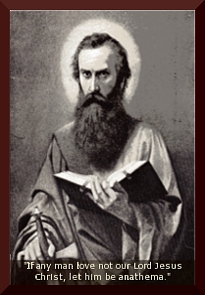Excerpts from an article written by Uwe Michael Lang, CO. The original, of March 11, 2011 is found here:
In fact, Mohrmann maintains that every form of believing in supernatural reality, in the existence of a transcendent being, leads necessarily to the adoption of a form of sacred language in worship, whereas radical secularism rejects any form of it.
The use of a sacred language in the liturgical celebration is part of what St. Thomas Aquinas in the Summa Theologiae calls the “solemnitas.” The Angelic Doctor teaches: “What is found in the sacraments by human institution is not necessary to the validity of the sacrament, but confers a certain solemnity, useful in the sacraments to exercise devotion and respect in those who receive it” (Summa Theologiae III, 64, 2; cf. 83, 4).
In an age marked by great mobility and globalization, a common liturgical language could serve as a bond of unity among peoples and cultures, apart from the fact that the Latin liturgy is a unique spiritual treasure that has nourished the life of the Church for many centuries. Undoubtedly, Latin contributes to the sacred and stable character “which attracts many to the old use,” as Benedict XVI wrote in his Letter to Bishops, on the occasion of the publication of the “Summorum Pontificum” (July 7, 2007).



